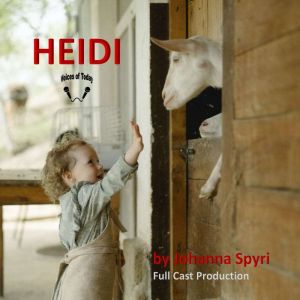Synopsis
First published in 1881, the subtitle of this book tells us that it was written “for children and those who love children”. Heidi, a 5-year-old orphan, is handed off by her young Aunt Dete to live with her grandfather in the Swiss Alps. Though her new life is foreign, Heidi soon falls in love with her grandfather, and he with her. They share a contented life of goat-herding.But when Grandfather refuses to allow Heidi to attend school in the small village below, quarrels ensue. Heidi’s young aunt returns to remove her from her grandfather, and Heidi is sent to live as a hired lady’s companion to wealthy Clara, a wheelchair-bound child in Frankfurt. Heidi is loved by Clara, but not by the others within Clara’s home, who consider her ill-mannered. She becomes severely homesick and the wealthy family’s doctor recommends her return to the mountains.CAST Narrator: Susan Iannucci Heidi: Trisha Rose Grandfather: Ben Stevens Brigitta: Jennifer Fournier Clara: Sarah BacallerAlso featuring the voices of Ron Altman, David Stifel, Al Gibson, Lee Ann Howlett, Joan Dukore, and Susan Marlowe.




